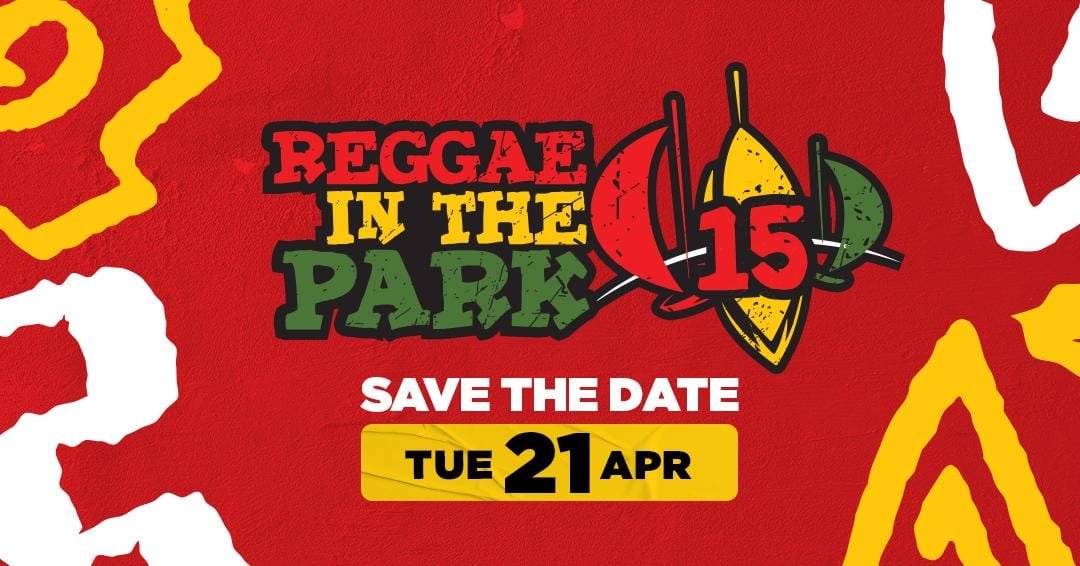
By Petra Williams www.petrathespectator.com
In the early hours of October 18, 2025, CARICOM issued a statement on the “security build- up in the Region.” The document struck a familiar chord of regional caution: reaffirming the Caribbean as a Zone of Peace, reiterating the need for dialogue and adherence to international law, and emphasising respect for sovereignty and territorial integrity.
Yet, the very wording of that statement, and several underlying dynamics, invite deeper reflection. Three observations stand out.
1. The Unspoken Neighbour
One cannot help but notice what the statement left out: any direct mention of that most southerly and generous neighbour of the Caribbean, our continental friend just beyond the southern edge of the archipelago. While CARICOM talks about “security build-up in the

Region” and potential impacts on Member States, it avoids explicitly naming or referencing
that neighbour.
Why is that omission significant? Silence can speak louder than words. In the theatre of international relations, omitting a major player when discussing regional security suggests both a reluctance to acknowledge influence and a recognition of it. The Community recognises that this neighbour wields significant economic influence, particularly in terms of assistance to member states. However, given more weighty factors, there is recognition that naming the country could explicitly imply confrontation or disapproval from elsewhere.
The generosity of that neighbour, whether in trade, development assistance, or through cultural initiatives, may make it politically delicate to single out. There is a fine line between acknowledging influence and appearing to distrust or alienate a friendly partner.

There may also be a silent acknowledgement of the international pressure now circling that nation, particularly following the recent awarding of the Nobel Peace Prize to its opposition leader. This act could be read as an unmistakable endorsement for the “changing of the
guard”. To reference the country directly at such a moment might have risked aligning CARICOM either with or against that global signal, and the region, cautious by design, avoided both.
From our vantage as smaller states, we are often squeezed between expressing principled regional positions and preserving working relationships with powerful neighbours. The silence may thus reflect a strategic choice: the Region says what it needs to say in general terms. However, it avoids upsetting an actor whose goodwill or cooperation might still be required, or whose “might” is too overwhelming to ignore.
The result is a statement that appears strong in principle yet cautious in practice. A reminder of the geopolitical tightrope that many Caribbean micro-states walk, wanting to assert their voice, yet still constrained by the realities of size, resources, and relational dependence.
2. Trinidad & Tobago’s “Dragon” Deal: A Strategic Shield?
Amid regional dynamics, it is worth giving credit where due, specifically to Trinidad & Tobago for managing to protect what is often called the Dragon gas-field deal along its maritime border with Venezuela. After years of uncertainty, the recent revival of U.S. licensing allows Trinidad & Tobago to move forward with Venezuela on the project, which has been seen as a critical win.
Why is this relevant in our present discussion?
The deal gives Trinidad & Tobago a strategic asset: in effect, a buffer. While many CARICOM states feel exposed by external military or security build-ups, Trinidad & Tobago’s energy diplomacy gives it a different posture, one less vulnerable to being simply a bystander.
It also signals that the country is willing to engage in the harder bargaining, the flank-defence that smaller states in the region often cannot afford. In doing so, it may relieve some of the pressure on its smaller neighbours, even if indirectly. By aligning its national interests (energy production, growth) with geopolitical considerations, the twin-island nation demonstrates how a small state in the Caribbean context can transition from a passive recipient to an active participant.
Yet Trinidad’s agile energy diplomacy now sits uneasily beside its latest stance on regional security. The Ministry of Foreign and Caricom Affairs’ recent support for U.S. military intervention in the Caribbean, issued even as two Trinidadian nationals were allegedly killed in those very operations, casts a long shadow over ideas of independence. Energy leverage can build confidence, but political alignment can quickly weaken it. In short, while the rest of the region may express concerns about security buildup, it is simultaneously securing its economic future while giving up parts of its diplomatic independence. That duality, pragmatic yet risky, should inspire admiration but also caution.
3. Micro-States, Micro-Resources, Macro Challenges
At the heart of the matter lies a sobering reality: the Caribbean micro-states can speak collectively, but their capacity to act is constrained.
Our reality is that the majority of CARICOM states are micro populations with limited defence, diplomatic, or economic resources. The recent statement on security underscores that many of the solutions must come via international cooperation and within international law, a recognition that unilateral action is rarely viable for small states when prominent extra- regional actors are involved. The danger is that the rhetoric of the Zone of Peace, dialogue, and sovereignty remains lofty, but the tools to enforce or defend those principles are thin.
We can issue statements, but we may lack the ships, radar, intelligence, budgets, and alliances to back them up. In effect, the region may be in a situation where it speaks and hopes but simultaneously watches from the margins as events unfold.
The recent radar proposal in Grenada and the compliance statement in Port of Spain show how swiftly the Region’s principles are being tested. These are not abstractions; they are choices unfolding in real time, revealing the tension between national pragmatism and regional philosophy. If CARICOM is to move from mere articulation to meaningful influence, a few steps seem necessary.
There is a need for a more affirmative approach when taking a stand. Naming the full range of actors involved in regional security might risk friction but avoiding them entirely reduces credibility. If a major neighbour is part of the equation, we should mention it, not as an accusation, but for clarity. Silence may protect relationships in the short term, but it erodes trust and effectiveness in the long term.
The Dragon deal is a template for how a Caribbean state can convert its geostrategic position into a protective asset. It shows that even small states, through foresight and negotiation, can carve out pockets of strategic advantage. However, given the limited natural resources of most of the region, this may not be a practical or replicable path for many. For the majority of CARICOM states, the economic reality is stark: we operate from a position of high dependency on the North: on markets, imports, remittances, and especially tourism. The very sectors that sustain our economies are often controlled or heavily influenced by external forces.
Therefore, while Trinidad and Tobago can leverage its gas reserves and Guyana is now positioned to leverage its oil deposits, others must consider non-traditional assets such as
intellectual, cultural, digital, and diplomatic resources, as potential “Dragons.” Trinidad, for its part, remains heavily reliant on its economic relationship with neighbouring Venezuela to develop the gas sector through the Dragon Field project, a partnership now complicated by Venezuela’s renewed presence in the U.S. bull’s-eye.
For many in the region, matching such leverage is far from easy. With our limited natural resources and many economies heavily relying on tourism and northern markets, the potential for parallel strategic deals is limited. The challenge, then, is to redefine what ‘strategic‘ means in our context — to recognize value not only in minerals and hydrocarbons but also in creativity, stability, credibility, and voice.
Building the Means
Statements and principles are helpful, but they must be backed by capacity, by tangible investments in regional intelligence, coordinated patrols, shared assets, and cohesive diplomatic strategy. These are not luxuries; they are necessities for a region that seeks to define and defend its own peace.
To do so, we must allocate more of our already limited government budgets to invest in regional intelligence and security collaboration. It will mean difficult trade-offs, but if we
continue to depend on others to gather information about what’s happening in our own waters
and airspace, we surrender action over our own safety.
Support from traditional partners, especially our bigger brothers in the North, may be helpful,
but it comes at a cost. History reminds us that such “assistance” often brings the likelihood of
interference and intervention, the very forces that threaten our so-called Zone of Peace. True sovereignty cannot be outsourced; it must be built, funded, and defended from within.
In Conclusion, we must move from being micro-states that react to being micro-states that act. That doesn’t require turning into major powers overnight, but it does demand leveraging our niche strengths, pooling resources regionally, and refusing to accept passivity. The Caribbean is no longer a quiet backwater untouched by the currents of global geopolitics. The build-up in our region is a reminder that the winds of international power still blow, sometimes directly through our seas and skies.
We must speak not just with caution, but with clarity! We must act, not just with hope, but with planning. And above all, we must remind ourselves that while our size may be small, our stakes are vast.
Petra Williams is a Caribbean special features writer whose work is featured regularly across Antigua and Barbuda’s media and occasionally throughout the wider region. As founder
of petrathespectator.com and publisher of The Spectator magazine, she blends history, culture, and economic insight into stories that celebrate and connect her twin-island home.
Advertise with the mоѕt vіѕіtеd nеwѕ ѕіtе іn Antigua!
We offer fully customizable and flexible digital marketing packages.
Contact us at [email protected]















Alot of big giant words used in that article, I’ll make it simple and straight forward. ITS ALL BS!! Who give the USA the right to send any missiles/ bomb to the Caribbean, suppose they accidentally blow up an island, can we do the same thing and say they damaging our ppl by their western immoral ways? No we cannot! But any country in the world that has OIL America wants it for themselves and then starts a war and say the folks are terrorist, who gives them any right to label ppl and as for THE UN! Woe be unto them!! Every thing the usa is doing and disrupting us down here is wrong in every possible way
Comments are closed.